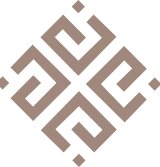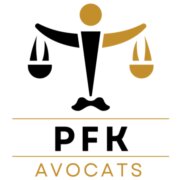Best Asylum Lawyers in DR Congo
Share your needs with us, get contacted by law firms.
Free. Takes 2 min.
Or refine your search by selecting a city:
List of the best lawyers in DR Congo
About Asylum Law in DR Congo
Asylum law in the Democratic Republic of Congo (DRC) is a critical area of law focused on protecting individuals who fear persecution in their home country. The DRC is a signatory to the 1951 Refugee Convention and the 1967 Protocol, which underline the international principles of asylum. The country's legal framework aims to offer refugees protection against forced return to a territory where they would face threats to their life or freedom. In addition to international agreements, the DRC maintains its regulations regarding the processing and rights of asylum seekers and refugees within its borders.
Why You May Need a Lawyer
There are several reasons why someone might seek legal advice when dealing with asylum issues in the DRC. Firstly, the asylum process involves navigating complex legal frameworks and completing detailed paperwork, where mistakes could lead to denial of status. Individuals may face challenges in proving their claims and meeting the necessary criteria for seeking asylum. In cases of negative decisions, legal assistance can be crucial for appeals and judicial reviews. A lawyer can also provide guidance on specific rights and support mechanisms available to asylum seekers in the DRC.
Local Laws Overview
The key aspects of local laws relevant to asylum in the DRC include the recognition of asylum seeker status and refugee status determination processes. The National Commission for Refugees (CNR) is the primary body responsible for processing asylum applications. Laws established in the DRC also protect the right of asylum seekers to access basic services such as healthcare and education. The principle of non-refoulement, which prohibits returning individuals to a country where they may be persecuted, is embedded in the national legislation. Due to security challenges and political dynamics within the DRC, these laws may be inconsistently implemented, highlighting the need for effective legal representation.
Frequently Asked Questions
1. What is the main criterion for being granted asylum in the DRC?
The primary criterion is demonstrating a well-founded fear of persecution based on race, religion, nationality, membership in a particular social group, or political opinion.
2. Can my family members apply for asylum with me?
Yes, family members can apply for asylum alongside the principal applicant, generally including spouses and children under the age of 18.
3. How long does the asylum process typically take in the DRC?
The process duration can vary significantly; however, it is typically lengthy due to administrative backlog and other circumstances.
4. Are asylum seekers allowed to work in the DRC?
While waiting for their application to be processed, asylum seekers do not generally have the formal right to work but might engage in informal work depending on local conditions.
5. What can I do if my asylum application is rejected?
You have the right to appeal the decision and seek a judicial review, for which obtaining legal support is highly recommended.
6. Will applying for asylum expose me to deportation?
No, the principle of non-refoulement protects asylum seekers from deportation during the application process and when appeals are pending.
7. Do asylum seekers receive any social benefits in the DRC?
Asylum seekers may have limited access to basic healthcare and education, but this varies widely within the region.
8. Is there a limit to the number of times one can apply for asylum?
Typically, the law allows for reapplication only under new evidence that affects the claim of fear of persecution.
9. Can I travel while my asylum application is pending?
Traveling outside the DRC is typically not recommended as it may impact your application. Consultation with a legal advisor is crucial.
10. What support networks are available for asylum seekers in the DRC?
Various international and local NGOs offer support services, including legal aid, accommodation assistance, and counseling.
Additional Resources
For further information and support, consider contacting the following organizations:
- National Commission for Refugees (CNR): The official body handling asylum applications and refugee status.
- UNHCR: Provides protection and support for refugees and asylum seekers in the DRC.
- Local NGOs: Various local non-governmental organizations offer legal assistance and social support to asylum seekers.
Next Steps
If you need legal assistance in asylum matters, it is crucial to consult with a qualified lawyer who specializes in refugee and asylum law. Start by gathering all necessary documentation related to your claim and consider reaching out to one of the organizations listed in the additional resources section for guidance. Legal aid clinics are sometimes available through universities and NGOs, providing necessary legal support at low or no cost. Ensuring you are well informed and supported throughout the process can significantly impact the outcome of your asylum application in the DRC.
Lawzana helps you find the best lawyers and law firms in DR Congo through a curated and pre-screened list of qualified legal professionals. Our platform offers rankings and detailed profiles of attorneys and law firms, allowing you to compare based on practice areas, including Asylum, experience, and client feedback.
Each profile includes a description of the firm's areas of practice, client reviews, team members and partners, year of establishment, spoken languages, office locations, contact information, social media presence, and any published articles or resources. Most firms on our platform speak English and are experienced in both local and international legal matters.
Get a quote from top-rated law firms in DR Congo — quickly, securely, and without unnecessary hassle.
Disclaimer:
The information provided on this page is for general informational purposes only and does not constitute legal advice. While we strive to ensure the accuracy and relevance of the content, legal information may change over time, and interpretations of the law can vary. You should always consult with a qualified legal professional for advice specific to your situation.
We disclaim all liability for actions taken or not taken based on the content of this page. If you believe any information is incorrect or outdated, please contact us, and we will review and update it where appropriate.
Browse asylum law firms by city in DR Congo
Refine your search by selecting a city.











